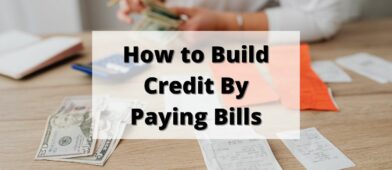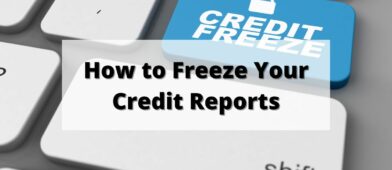Reverse mortgages have been growing in popularity in the last few years, due to a combination of factors. In addition to rising property values and higher living costs, millions of seniors on fixed incomes desire to remain in their homes.
Dozens of lenders participate in the reverse mortgage programs, which are often advertised on TV, the radio, and online. But what is a reverse mortgage, how does a reverse mortgage work, and is a reverse mortgage right for you?
Table of Contents
- What Is a Reverse Mortgage and How Does It Work?
- Reverse Mortgage Advantages
- Reverse Mortgages Eliminate Your Monthly Principal & Interest Payment
- Reverse Mortgages Can Provide Extra Cash or an Additional Income
- There Are No Tax Consequences for Reverse Mortgage Equity Withdrawals
- It Might Be the Best Way to Stay In Your House
- You Won’t Lose Your Home If the Value Falls
- Reverse Mortgage Disadvantages
- Reduction In Your Home Equity
- The Loan Amount Is Limited by Your Home Equity
- Reverse Mortgages Have High Closing Costs
- You Must Still Pay Property Taxes, Insurance Repairs, and Maintenance
- Reverse Mortgages Have an Age Requirement
- Should You Take a Reverse Mortgage?
What Is a Reverse Mortgage and How Does It Work?
A reverse mortgage is a special program offered through the Federal Housing Administration (FHA). The technical term for a reverse mortgage is Home Equity Conversion Mortgages or HECMs for short. They’re designed to help older homeowners access the equity in their homes without creating a corresponding monthly payment.
The term “reverse” relates to the payment itself. Instead of making monthly payments on the loan, the borrower can receive monthly payments from the lender. This allows senior homeowners access the equity in their homes without taking on a traditional mortgage and its repayment conditions.
Borrower Requirements
To qualify for a reverse mortgage, you must meet certain very specific program requirements:
You must be at least 62 years old.
The home the reverse mortgage will be secured by will be owner-occupied as your principal residence.
You must have substantial equity in the home; the more equity you have, the more cash you’ll be able to access.
You cannot be delinquent on any debts owed to the federal government.
Once you take the loan, you must be fully able to manage payments for property taxes, insurance, utilities, and repairs and maintenance.
You’ll be required to participate in a consumer information session from an FHA-approved counselor.
Property Requirements
The property must be a 1-to-4 family detached home, or an FHA-approved condominium or manufactured home. Maximum loan amounts are established and updated by the Federal Housing Finance Agency (FHFA). For 2021, the maximum can range between $548,250 and $822,375. The exact amount will depend on the county the home is located in as well as the number of living units it includes.
But exactly how much you can borrow will also depend on a combination of the equity you have in your home and your age at the time of application.
Your equity is determined by the appraised value of the home, less any existing indebtedness against it.
Age Requirements
FHA doesn’t publish specific age-related equity percentages for loan amounts. But the older you are, the higher the percentage of equity you can access from the home. For example, you may be able to access 50% of the equity in your home at age 62, and up to 80% may be available if you are 80 or above.
Distribution of Proceeds
Once approved for a reverse mortgage, you’ll have the option to establish a line of credit that you can access as needed, or receive monthly regular monthly payments.
Monthly payments can be either for a specific amount of time or in equal monthly payments. At least one borrower must continue to live in the home as a principal residence.
Reverse Mortgage Advantages
Reverse Mortgages Eliminate Your Monthly Principal & Interest Payment
Once again, this is the basic concept of a reverse mortgage. Instead of making monthly payments to the lender, the borrower receives monthly payments (or access to a line of credit against the home) for a specific amount of time.
You’ll still be responsible for paying other costs related to the maintenance and upkeep of your home. But you will not be liable for paying monthly principal and interest to the lender the way you would if you did a traditional refinance.
If you currently have principal and interest payments on your existing first mortgage, taking a reverse mortgage can make this payment go away if the reverse mortgage amount exceeds the balance of your current mortgage.
Reverse Mortgages Can Provide Extra Cash or an Additional Income
One of the primary reasons senior homeowners choose reverse mortgages is to access the equity in the property. The traditional mortgage refinance has the disadvantage of creating a new and higher monthly payment. This won’t be the case with a reverse mortgage.
You can access the proceeds of the loan through an equity line of credit and have funds ready and available whenever you need them.
Alternatively, you can choose to take the proceeds in the form of monthly payments. In this way, you’ll create an additional income stream from your home.
This additional income stream often enables seniors to continue living in their homes even when monthly income doesn’t fully cover living expenses.
There Are No Tax Consequences for Reverse Mortgage Equity Withdrawals
The cash from a reverse mortgage can become a source of tax-free income. Since the loan proceeds are an advance of home equity, they are not considered income, and thus they’re not taxable.
This is unlike other strategies for generating income or accessing cash. For example, If you sell stocks held in a taxable account, you’ll have to pay tax on any capital gains.
Similarly, if you take distributions from a tax-sheltered retirement plan, those distributions may be taxable as ordinary income. Withdrawing a large sum could even put you into a higher tax bracket.
A reverse mortgage provides the same cash without having the proceeds being reduced by taxes.
It Might Be the Best Way to Stay In Your House
If you’re on a fixed income like many seniors, it may not be keeping up with the cost of living. The additional income from a reverse mortgage can let you stay in your home, even on a fixed income.
You Won’t Lose Your Home If the Value Falls
With a reverse mortgage, there’s no threat of losing your home if the property’s value falls below the mortgage balance. You can continue to live in the house for the rest of your life.
The lender cannot force you to repay the loan early either.
It may even be possible for you to refinance an existing reverse mortgage. If the property’s value increases substantially you’ll have access to a higher percentage of equity in the home.
Other scenarios where you might qualify for a reverse mortgage refinance: there’s a significant decline in interest rates; there’s an increase in the maximum allowable mortgage amount; you’re looking to convert an adjustable-rate mortgage to a fixed rate, or; if you need to change a borrower on the loan.
Reverse Mortgage Disadvantages
Reduction In Your Home Equity
A reverse mortgage gives you access to the equity in your home, much like a traditional mortgage refinance. The downside is that you’ll have less equity in the future if you need it for other purposes.
For example, let’s say that you decide to move to a different home later. The reduced amount of home equity means fewer options to move to a new home or a different location.
The Loan Amount Is Limited by Your Home Equity
The equity you have in your home is a significant factor in determining how much you can borrow. Insufficient equity will mean either fewer proceeds or even being turned down for the loan.
For example, let’s say you’re 62 years old, your home is worth $400,000, and your current mortgage is $250,000. With a maximum loan amount of $200,000, you’ll be unable to complete the refinance. In this situation, the balance of your current mortgage exceeds the maximum allowable reverse mortgage amount at age 62.
In the following example, the reverse mortgage proceeds may be insufficient, even though you may qualify.
Let’s say you owe $150,000 on your $400,000 home. You can borrow 50%, or $200,000. But the net proceeds will only be $50,000 ($200,000 less $150,000 to pay off the existing mortgage).
Depending upon the purpose of the reverse mortgage, $50,000 may not be enough.
Reverse Mortgages Have High Closing Costs
Any time you take a new first mortgage against your home, you’ll incur closing costs. Those closing costs will reduce the proceeds you’ll receive from the new loan. But because of the unique nature of reverse mortgages, those closing costs are higher than they are on traditional refinances.
Closing costs on a traditional mortgage refinance range between 2% and 3% of the loan amount. Reverse mortgage closing costs easily exceed 4%., starting with the FHA mortgage insurance premium or MIP. The MIP is the fee you’ll pay to FHA for providing insurance to the lender for making the loan.
You’ll be required to pay an upfront fee of 2% of the new mortgage amount. In addition, there’s also an annual MIP equal to 0.50% of the loan’s outstanding balance. If your loan amount is $200,000, the annual premium will be $1,000 ($200,000 X 0.50%). In this scenario, it adds about $83 per month to the loan cost, reducing your monthly loan income.
There’s also an origination fee. Lenders can charge the greater of $2,500, or 2% of the first $200,000 of the home’s value, plus 1% of the value above $200,000. That means a lender can charge as much as $4,000 (2%) of a loan amount of $200,000.
Additional fees are paid to parties involved in originating the loan. These include title charges, appraisal, recording, and survey fees, to name a few.
You Must Still Pay Property Taxes, Insurance Repairs, and Maintenance
While there are no monthly payments on a reverse mortgage, you still need to cover other homeownership costs. That includes property taxes, homeowner’s insurance, utilities, and the cost of repairing and maintaining the property.
Even though you have a reverse mortgage, it’s possible to lose the home for non-payment of real estate taxes.
Reverse Mortgages Have an Age Requirement
Reverse mortgages are available only to eligible homeowners ages 62 or higher. If you have not yet reached that age, a reverse mortgage is not an option.
Even if you qualify, the amount you can borrow will be based on your age at the time of application. The younger you are, the lower the percentage equity you’ll be able to borrow against the home.
For that reason, reverse mortgages tend to work best for borrowers in their 70s or 80s. At that age, you’re able to access more equity, making it more likely the loan will meet your financial needs.
Should You Take a Reverse Mortgage?
A reverse mortgage is complicated by the multiple provisions you need to be aware of before applying.
You should start by evaluating what you expect a reverse mortgage to do for you. Will it primarily be to access the cash in your home or to provide you with an ongoing revenue stream? In either case, do you have sufficient equity in the home to meet that need?
You also need to consider the long-term implications. For example, you may want to relocate in the future, perhaps to live closer to your children. In that case, a reverse mortgage may reduce your home equity enough to make a move impractical.
Before taking a reverse mortgage, be sure you’re aware of everything that’s involved. And once you are, you should seriously consider discussing the proposition with an attorney, a CPA, or a financial planner. Since they deal with reverse mortgages, they may be able to advise you on the best course of action.



